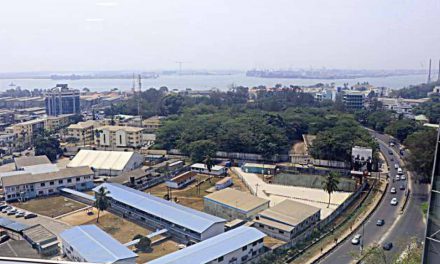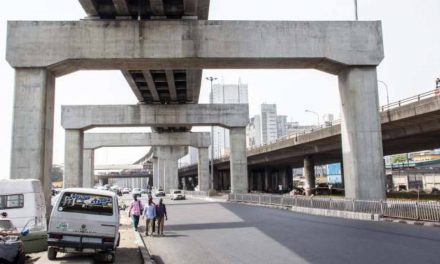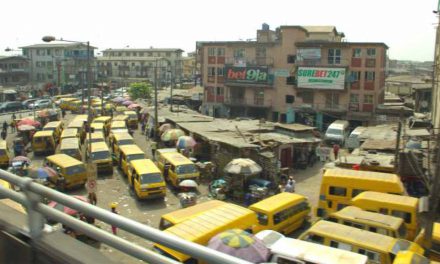The Coronavirus pandemic (Covid-19) is compounding Nigeria’s governance weaknesses. It has led to an exacerbation of systemic challenges, including depleted state capacity, endemic corruption and inefficiencies. Successive governments like the incumbent Buhari administration have recorded little or negligible progress in addressing several risks to Nigeria’s longer term sustainability.
Whilst everyday social service delivery and state functions have been long deficient, the onset of the Covid-19 crisis further exposed many of the country’s vulnerabilities. Unsurprisingly, the immediate efforts to address public health and economic difficulty brought by this crisis have been flailing and adjudged insufficient by the majority of Nigeria’s citizens.
Use crisis as opportunity to shift balance
Nigeria must tap innovative ideas and demonstrate renewed determination if it is to overcome the legion constraints to social progress and development. Not least, the perennial economic underperformance amidst an uncontrolled population explosion, searing instability and conflicts in pockets of the country, as well as the intractably low social and human development achievements.
Whilst all of these challenges are longstanding and well known, trends set in motion by the Covid-19 pandemic are of particular interest in the way that they have revealed the divergence in the capabilities and capacities of governmental actors at different levels in Nigeria. These span the federal level through state adminstrations and the local authorities. Also, going beyond official governance structures, there appears to be a growing, and for the most part underappreciated, capacity for citizen-led forms of governance as corrective to under-achieving formal structures. These self-organising governance improvisations have found vitalism and relevance as society mobilises dynamically to cope with the pandemic and its fallouts.
Non-governmental actors including CSOs, NGOs, the private sector, professional guilds, religious organisation and similar non-governmental formations throughout Nigeria have been important drivers of Covid-19 mitigation actions since the country’s introduction of lock down of socal and economic activities in March 2020 to buy time and slow down the progression of the pandemic.
As these social actors have been dramatically pushed to the fore in the efforts to mitigate the health, economic, social, security and other long-term implications of the Covid-19 crisis, this shift perhaps points to a promising opportunity to reshape the state-society balance in Nigeria? Perhaps this highlights one possible way to foster more pragmatic approaches to governance, particularly those forms of governance that prioritise the interests and needs of citizens? Perhaps an avenue to unleash more inclusive governance, unconstrained by the formal framings that have long skewed power and centralised resources in Nigeria’s imperfect federal structures to the detriment of truly devolved local governance?
These reflections will be worthwhile and could provide a useful focus for future editions of the NGI in terms of reimagining Nigeria’s governance reform in the context of a significantly reshaped post-Covid-19 landscape.
The immediate risk factors for Nigeria’s stability have doubtless multiplied, whilst the medium to longer term implications of the coronavirus pandemic continue to unfold and likely to take some time to become fully crystallised.
Nevertheless, this edition of the Nigeria Governance Insight (NGI) speaks lucidly and cogently to the many pressing reform challenges for Nigeria which have now become more acute after the pandemic outbreak.
The initial reform steps forced by the crisis may be suggesting serious hope for Nigeria in terms of finally embarking on signifiant, comprehensive reform across the wide governance spectrum. Evidence of these include recent moves towards greater transparency in the reporting of the activities of Nigeria’s state-owned oil company, part of broader changes aimed at boosting revenue collection. Other steps have included unification of the various foreign exchange rates of Nigeria’s naira currency, much like the recent move to market modulated price for petroleum at the pumps after decades of opaque subsidy schemes, etc.
These steps leave the unmistakable impression of crisis management actions forced by economic, fiscal and other mounting pressures. What Nigeria really needs is more carefully considered phase-in of corrective actions, based on clear change ideas that are systematically conceived and correctly sequenced. Such an approach will enhance the prospect for success and sustainable outcomes in the long term.
The analyses and policy prescriptions in this volume are vital for Nigeria to address the existing and emerging challenges in this well ordered manner. The various contributors outline specific blockages to reform in different socio- economic and political sectors over the past five years. Based on rigorous retrospective analysis, they also project forward on major reform opportunities that the country should seek realistically to leverage.
Indeed, with the precipitous fall in the price and quantities of Nigeria’s lifeline oil export in 2020 also coinciding with the Covid-19 pandemic, it appears that it has never been truer that a major crisis could be the harbinger of unparalleled reform opportunities which will allow Nigeria a fundamental reset to finally begin to reach its great potential.
Will the country after all rise to this challenge? How exactly should this sudden onset, multidimensional crisis be leveraged to remake governance and reshape the polity? Which are the low hanging reforms that politicians and policymakers ought realistically to prioritise in order to kickstart and optimise the long overdue reform changes?
Each of the chapters in this NGI issue provide innovative ideas which are relevant to both the design of policies and interventions, and the steps to actualise them with the involvement of relevant stakeholder and constituencies. These are expert contributions informed by hands-on policy experience.
Follow the money
In Ayo Teriba’s contribution, “Unlocking liquidity crucial to fueling development”, diverse layers of Nigeria’s funding challenge are explored. He classifies Nigeria’s liquidity challenge along three dimensions: fiscal, financial and foreign exchange. With total revenue available to the three tiers of government well below 10 percent of Gross Domestic Product since 2015, recurrent, capital and debt repayment obligations have come under severe stress.
The massive drop in oil price in the first quarter of 2020, against the backdrop of the economic shutdown to slow the spread of the coronavirus, has further darkened the economic cloud. As a result, the government has been forced to conclude an agreement for a $3.4 billion Rapid Financing Instrument (RFI) with the International Monetary Fund in April 2020.
On Nigeria’s low financial liquidity threshold, he observes that local banks whilst efficiently meeting local transactional payment needs have struggled to extend loans with deposits at their disposal amounting to only about 20% of total GDP. This is far below the funding threshold of banks in some of Nigeria’s peer countries with deposits totalling 40-200% of GDP. This has doubtless limited Nigerian banks in their financial intermediary function to the detriment of the economy.
Similarly, bouts of oil price weakness and the resultant collapse in foreign exchange earnings have reduced Nigeria’s external liquidity. This has pressured the naira currency into the successive rounds of devaluations, creating shallow banks, bonds and equity markets, which contribute to the frequent growth reversals.
Yet, opportunities abound to enhance liquidity. Teriba’s proposals include a focus on creatively opening up new streams of non-export and non-tax revenue. He outlines innovative ideas for optimising national assets, including commercialising idle or underutilized government-owned land and built structures through leasing, and repurposing prime locations for rental income. Also, he canvasses broad liberalisation and privatisation to attract greenfield Foreign Direct Investment. Similarly, Teriba proposes securitisation of government equity holdings in projects like the Nigerian Liquefied Natural Gas project (allowing Nigerians at home and in the diaspora to invest in them). He also advocates the conversion of government assets in other wholly state owned ventures into securitisable joint ventures allowing foreign investors to own a minimum of 51 percent.
Joe Abah ‘s contribution looks at the systemic inefficiencies, as well as the policy, institutional, political and operational hindrances that undermine Nigeria’s Public Procurement Act (2007). Titled “Public procurement in Nigeria is stuck in a quagmire”, this analysis outlines several critical challenges in the way of a smoothly functioning public procurement system in Nigeria, from waste to corruption through governance blockages and adminstrative idiosyncrasies.
Abah discusses Nigeria’s procurement challenges with the keen eye of a governance reform technocrat with experience of the inside workings of Nigeria’s public sector. His analyses reflect how certain provisions within the Public Procurement Act, which itself was enacted to improve efficiency, minimize fraud and ensure fair consideration of all bidders, oftentimes contribute to delays and unnecessary expenses.
In addition, he inveighes against certain impractical suggestions that have been put forward for improving procurement reform. One of these is the idea that government departments should initiate procurement activities early (before the actual issuing of contract award letter), and well ahead of the actual passing of the budget so that the execution of capital projects can be expedited. This approach, he argues, will prove problematic because the final approved budget can often markedly differ from the spending plan proposed by a government department.
The contribution then catalogues some of the steps that have so far been taken to remedy identified deficiencies in the current system. These include among others the development of a standard price list, putting in place of a “price checker”, use of e-procurment system and working with the Open Governance Initiative (OGP), which won the Bureau of Public Procurement (BPP) a Global Government Innovation Award in June 2017.
Abah shows that much improvement is still needed, including the National Council on Procurement provided for in law but which has not been established in reality. In his recommendations, he argues persuasively for legislative changes to ensure that the procurement regime does not become a barrier to national development and additional legislation to mandate budget proposals to be passed into law by a set deadline. Also, fine-tuning the procurement act to focus more on delivery, not just fraud prevention, has become necessary.
Eyo Ekpo’s chapter focuses on “Reform and infrastructure in Nigeria”, arguing that a focus on citizens’ well-being is needed to properly recalibrate investment priorities. Ekpo canvasses for more focus on enhancing business processes, developing the informal sector to make it more profitable, and a broader liberalization across the board. This will help to loosen the federal government’s unhealthy stranglehold on the “commanding heights” of the economy which historically has stifled the private sector and constrained Nigeria’s budding entrepreneurs from fulfilling their role as the linchpin for growing a more dynamic and better diversified economy.
He attributes Nigeria’s falling growth and fast expanding public debt to the fact that almost the entirety of Nigeria’s infrastructure stock is tightly held by the federal government. To rapidly redress this, he advocates enabling the private sector to invest in target sectors by the fastest means possible. He also contends that there is little evidence of policy interventions that have produced broadly optimal results in the infrastructure space in recent years.
To buttress this, Ekpo cites the example of roads building where there has been a total dependence on the national budget. For rail, the massive effort to mobilise Chinese bilateral funding has yielded mixed results. On ports infrastructure, more viable options like the Lomé and Cotonou ports in neighboring countries have emerged as viable alternatives to the Lagos Port Complex. He contrasts the underperformance of this state-run port in Lagos to the nearby, private sector-led Lekki Port/Lagos Free Trade Zone which has succeeded and is further mobilising more private sector funding for a new deepwater project considered to be viable on technical and commercial criteria.
On electricity and deployment of Nigeria’s vast natural gas potential, reform efforts have seen unbundling, corporatisation and creation of a fully autonomous sector regulator. Yet, the chronic electricity supply shortage has not been ameliorated because backward looking policymaking has held back the promised improvements. With regards to improving the ease of doing business, impressive though little appreciated advances have been recorded. Even then, there’s need for this to be broadly complemented by an actual improvement in the prospect of enterpreneurs running and growing their businesses successfully. This remains chronically difficult in Nigeria.
To remedy the lingering challenges to effective infrastructure build in Nigeria, Ekpo outlines proposals for making it easy and profitable for businesses to formalise in Nigeria. Also, he suggests some ideas for reducing procurement time to foster infrastructure partnerships and joint ventures: deregulation of infrastructure ownership and control; and fostering devolution through shared “administrative contracts” with state governments to expedite the process of project design and development, capital raising and contracting.
Ekpo canvasses for this as part of a broader governance reform vision which will go beyond regime security or the well-being of the president of the day. This will really take on board the well-being of citizens with the strategic element of national security including military, diplomatic, intelligence and economic assets optimally channelled to promote this inclusive end.
Rewriting ground rules
Cheta Nwanze’s contribution looks at “Why so many important constitutional amendments fail”. This lays bare serious contentions at the heart of efforts to define inclusive ground rules of the Nigerian project. He explored the reasons for Nigeria’s still elusive quest for an inclusive national dialogue in a broad historical perspective. The author also highlights the lack of inclusive engagement and buy-in which has often condemned past constitutional amendment proposals to failure. These include attempts during different parliamentary terms to change the Land Use Act (which remains unhelpfully embedded in Nigeria’s difficult-to-amend Constitution), and the Distributable Pool Account Amendment proposal (which would have boosted grassroots governance by strengthening the fiscal autonomy of local governments).
Others include the Gender Quota Amendment (which aimed to mandate the reservation of 35% of ministerial appointments for women), and the Devolution Amendment (which proposed moving certain matters from the exclusively Federal List to the Concurrent List for federal and state legislation including on policing).
Innovative proposals for the devolution of policing powers are outlined in the chapter contributed by Bello and Balogun to this volume. Suffice it to say that the core of Nwanze’s own proposals is the simple idea of bringing back the people into governance and creating a confluence of their competing and shared interests to define a way forward for a shared Nigerian project.
Ola Bello and Femi Balogun make the case for ambitious experimentation in Nigeria’s policing reform. They argue that tackling insecurity urgently requires the formation of ethnically diverse police forces collectively recruited by the leaders of each state within reach of Nigeria’s six geopolitical zones. Recruitment into the forces should both take account of Nigeria’s ethnic diversity and seek to foster a culture of consensus politics and joint problem- solving among governors in each geopolitical region.
This can be achieved with a constitutional requirement of a maximum of seventy percent of the forces to be drawn from the concerned geopolitical zone, joint control and pooled funding by the states and their private sectors. Each governor should also possess a veto vote over both the selection of the commander of the forces and deployments for sensitive operations such as during the conduct of elections.
In his contribution, Abimbola Agboluaje explores Nigeria’s options for creating a more broad based mortgage system to close the wide housing deficit. He argues that a conceptual separation of two distinct elements are needed to arrive at more efficient housing policy solutions. These is respectively interventions by the government to assist private sector led housing delivery on the one hand, and interventions to ease the housing conditions that low-income Nigerians face.
Agboluaje’s analysis demonstrates the need for distinct strategies and interventions to assist low-income earners separate from those to support market delivery of homes for middle and higher income earners.
To increase incentives for Nigerians to contribute to the National Housing Fund (NHF), Agboluaje proposes that the government should raise its interest rate from 6% to 12% whilst also turning the fund into a leveraging vehicle for repurchase of mortgage loans from banks. The repurposed fund should also provide funding for the development of rent-subsidized public housing with renters, crucially, also needing to contribute to the NHF in order to qualify for accommodation in low-income social housing.
Reforming Nigeria’s textile and garment industry forms the focus of the chapter contributed by Nonso Obikili. In particular, the government’s protectionist and domestic focus in the sector have proved to be grossly inefficient, stifling Nigeria’s chances of thriving in this industry that is increasingly competitive internationally.
The author’s analysis spans the highly segmented clusters of activities across this sector, starting from the raw materials production through the middle of the value chain (involving activities such as ginning and dyeing), all the way to the end segments (such as production of final fabrics and use in clothing, home furnishings and other industrial uses).
Obikili iterates the steps involved in crafting more competitive policies for the textile and garment industry. To this end, his recommendations include more disciplined focus on segments with the highest job creation and growth potential.
More objective analyses and disciplined policy interventions will also help Nigeria to really determine where job creation is a realistic objective and where integration into global value chains might be possible. Ultimately, the long subsisting policies that force sub-sectors in the industry to rely on one another for supplies should be discarded for more efficient competitive sourcing of inputs.
Making numbers count
The chapter by Julia Bello-Schünemann examines the critical role of data and foresight in governance and development. She argues that without data which is key to planning, neither good governance nor sustainable development could be achieved. About 140 million of Nigeria’s citizens are likely to live in poverty out of a projected population of 360 million people by 2040. The chapter argues that reversing this trajectory will require good policies rooted in evidence and sound planning, with data at the centre of decision making and allocation of limited resources.
Indeed, the success or otherwise of the many wide ranging policy prescriptions and interventions proposed in this entire volume will depend on the sort of planning and data driven approach to governance proposed by Dr Bello-Schünemann.
Her chapter further details several of Nigeria’s interconnected challenges including poverty, poor health and education outcomes, severe infrastructure deficit, slow economic growth and high levels of inequality. These poor development outcomes are directly traced to the bad governance and defective choices made by successive Nigerian adminstrations which have failed to effect changes to benefit society.What is more, politics in Nigeria stands in the way of conducting a credible national census.
Crucially, a declared central policy objective of the Buhari adminstration is to lift 100 million Nigerians out of poverty over the next decade. However, the International Futures system (IFs), a global integrated modeling platform, forecasts that the number of extremely poor Nigerians is set to increase by around 26 million over the same time horizon. Furthermore, more than 30 million more Nigerians are likely to live in extreme poverty by 2040. Butressing this, Nigeria is not on track to achieve the Goal 1 of the Sustainable Development Goals (SDGs) which is to ‘eradicate extreme poverty for all people everywhere’ by 2030.
Notably, the first Buhari adminstration from 2015-2019 did not engage in comprehensive or integrated long term planning exercises to tackle several mounting developmental challenges. Despite presidential proclamations such as the one in 2019 recognising the need to “improve the quality of data available for decision-making”, the 2019 Africa Governance report actually notes that “Nigeria’s statistical capacity has been deteriorating over the period from 2014 to 2017”.
In proferring remedies, Bello-Schünemann recommends greater allocation of resources to support the National Bureau of Statistics and working pragmatically with the currently available evidence using credible data curation mechanisms. Also, there is need to involve Nigeria’s legion sector experts in a coordinated fashion to validate data and also the engagement of broader stakeholders in conversations that help infuse smart data into planning such as the grassroots-level data at the disposal of civil society organisations like BudgIT or Connected Development.
For Olu Fasan, Nigeria’s current democracy falls far short of being either accountable or representative. He develops a theoretical framework to make this assessment, evaluating themes such as consent and social contract, the delivery of basic needs such as human and physical security, the credibility of electoral conduct, and overall governance effectiveness and social progress. He points to the pervasive and mounting evidence of insecurity and poverty borne of economic mismanagement, unemployment and poverty as recurrent decimals in Nigeria’s misgovernance experience.
Fasan therefore canvasses a complete overhaul of the governance system based on a new political and constitutional settlement with society also embracing a normative agenda that promotes positive values and anti- corruption ethics. He identifies in particular the need for a laser focus on steps to build a robust market economy for inclusive prosperity; revamp of the electoral system and practices to underpin legitimacy of the government; opening up channels for meaningful citizen participation in governance with in-built checks to deter abuse of power; and rebuilding of institutions to boost state capacity and government effectiveness.
Quo vadis?
In summing up, much needs to be done. But most important, simplification of the choices facing the country in a way that allows citizens to engage with informed discussions on policy options and challenges is essential.
One iterative framework that fulfills this simplification need is to think of governance in Nigeria in terms of the key allocative issues that now need urgent resolution. What ends does the collective aim to achieve, what available or possible resources can be mobilised to these ends, how should responsibilities be allocated and what burden-sharing may be necessary?
Oladiran (Ola) Bello obtained both his MPhil and PhD degrees in International Relations from the University of Cambridge and also holds a First Class BSc degree from the Obafemi Awolowo University, Ile-Ife. He has worked for organisations including the United Nations (New York) and Management Systems International (Washington DC), Merchant International Group (London) and Arthur Andersen (later KPMG). Dr Ola Bello has more than 10 years of experience in research and policy advisory, including on governance and extractive sector reform; sustainable development; and international development cooperation (including in EU-Africa relations). He spent three years with FRIDE (Spain) managing a donor-funded programme on the EU’s role in managing fragility and resource governance in select African countries. In 2012-2015, he was Head, Governance of Africa’s Resource Programme (GARP) at the South African Institute of International Affairs (SAIIA) and also functioned as head of SAIIA’s Cape Town office. Ola is spearheading GGA's technical support to Nigerian reform, including delivering ethics training for senior Nigerian judicial officers and change-makers (2017-2019). He's also working to expand GGA's role as in-country resource centre for multilateral consultative missions to Nigeria's ministries and parastatals. These missions include the UNECA/AU mineral sector governance team.













